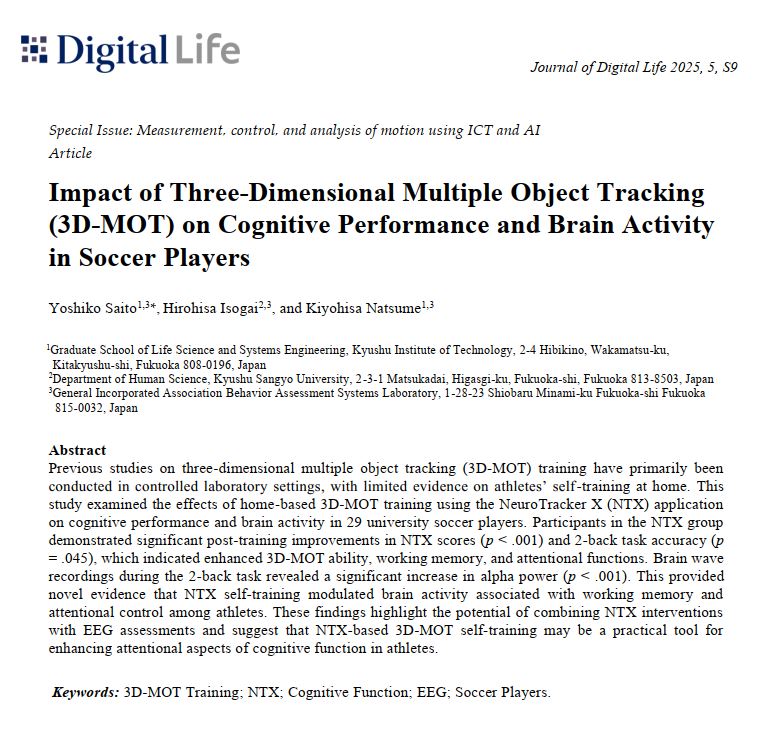Welcome to the Research and Strategy Services at in today's fast-paced.


A new study with professional soccer players in Greece aimed to investigate whether neuromotor training could accelerate football-specific decision-making outcomes across two competition seasons. It focused on the relationship between visual tracking speeds (VTS) and football-specific performance measures. Here we will cover a summary of the study.

The study included 11 professional football players (5 offense players, 6 defense players) from two major Super League football clubs. The offense players had an average age of 26.8 years, while the defense players had an average age of 23.2 years.
Visual tracking speed was assessed via NeuroTracker, with players completing one core session consisting of 20 trials. Football-specific performance measures were collected using the Wyscout analytics platform, including actions when:-
· Team is winning/losing
· Actions with/without a yellow card
· Dribbles
· Through passes
· Forward passes
· Assists
Rigorous statistical analysis methods were used to compare variables between seasons. Effect sizes were calculated to determine the magnitude of differences.
The study found significant improvements in most variables in the second season compared to the first season. Specifically, there were significant increases in actions when team is winning/losing, total actionswithout a yellow card, through passes, forward passes, and assists.
The study findings suggest that visual tracking speed (VTS) plays a crucial role in evaluating football players, as it reflects their ability to monitor multiple objects in a dynamic environment, enabling quicker responses to game demands. Despite the study's preliminary nature, the results indicate a meaningful link between higher VTS and better performance in ball control measures, highlighting the importance of assessing players' cognitive capabilities for team success in recruitment and strategic planning.
The results suggest that NeuroTracker baseline measures are significantly related to football players' ability to perceive and respond to stimuli on the field. Enhanced tracking capability may lead to improved game-related measures of performance, particularly in ball control.
The study suggests that neuromotor training based around increasing visual tracking speed could be beneficial for football players, which would be a practical method for football clubs and academies to integrate into their player development programs to enhance decision making skills and improve the quality of talent produced.
The findings could also have implications for other teamsports, such as basketball, hockey, and rugby, where quick decision making and spatial awareness are crucial.
Study Reference
Does neuromotor training accelerate football-specific decision making outcomes in professional football players over two seasons? (open-access paper)
Georgios Kakavas, Nikolaos Malliaropoulos, MichailMitrotasios, Orestis Christofilakis, Florian Forelli, Panagiotis Tsaklis. Published in Sport Performance and Science Reports.








Welcome to the Research and Strategy Services at in today's fast-paced.

A new controlled study shows that remote NeuroTrackerX training improved attentional performance and frontal alpha brain activity in university soccer players.

An explanation of a structured habit-building framework for cognitive routines, emphasizing consistency, accountability, and long-term sustainability.

From stereo-3D to adaptive speed thresholds, get the lowdown on what makes NeuroTracker tick.
.png)